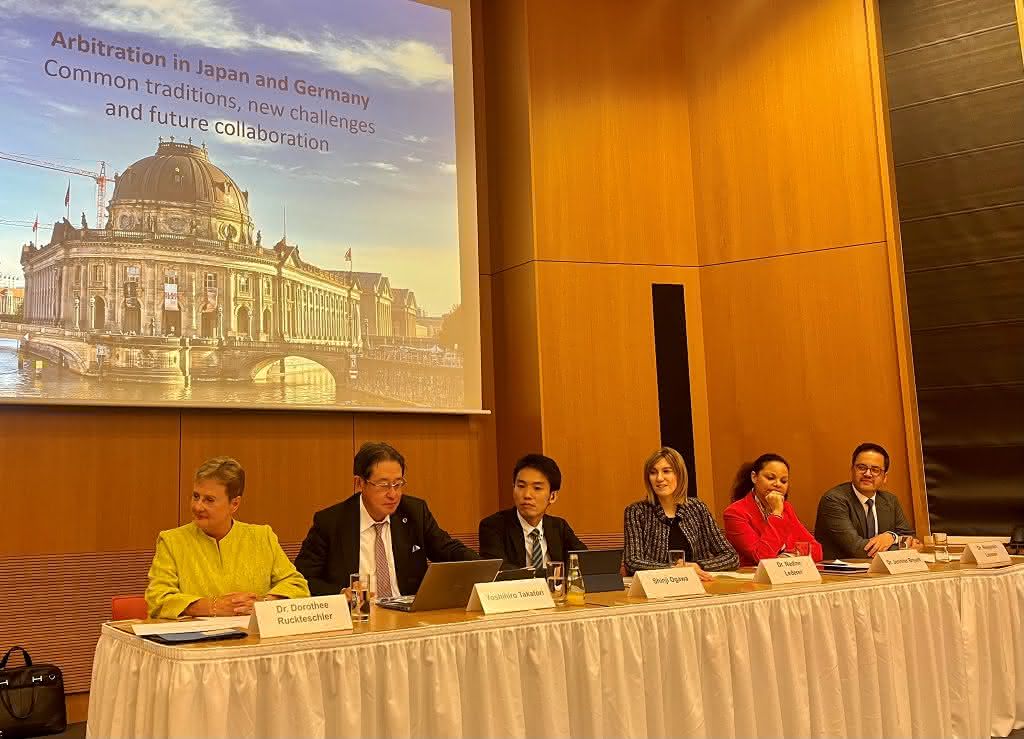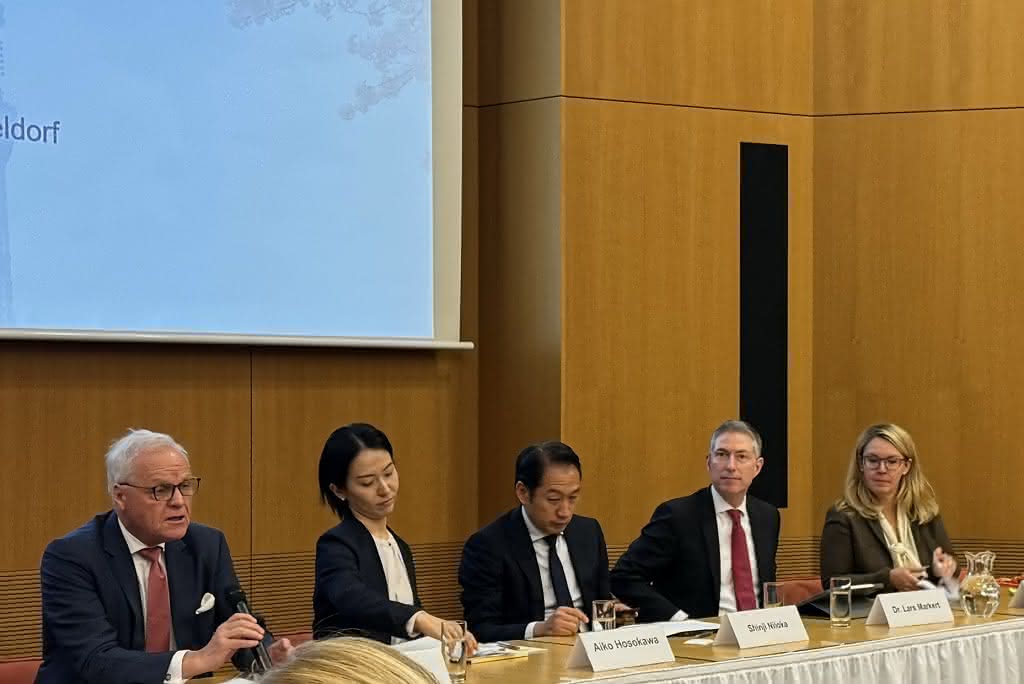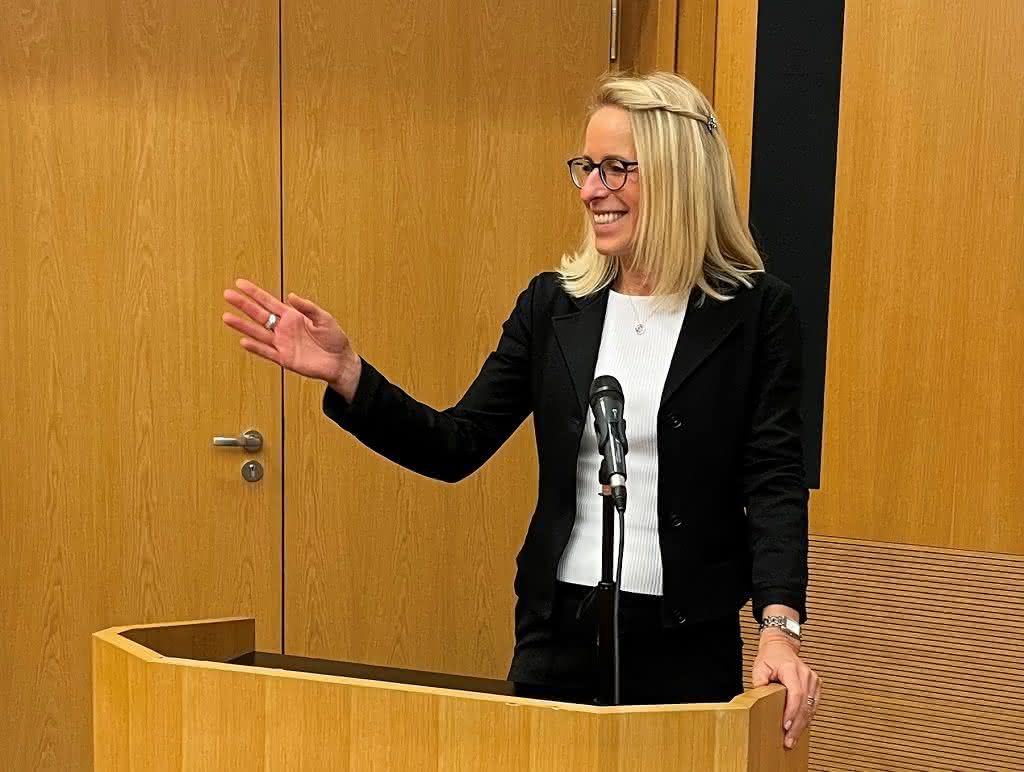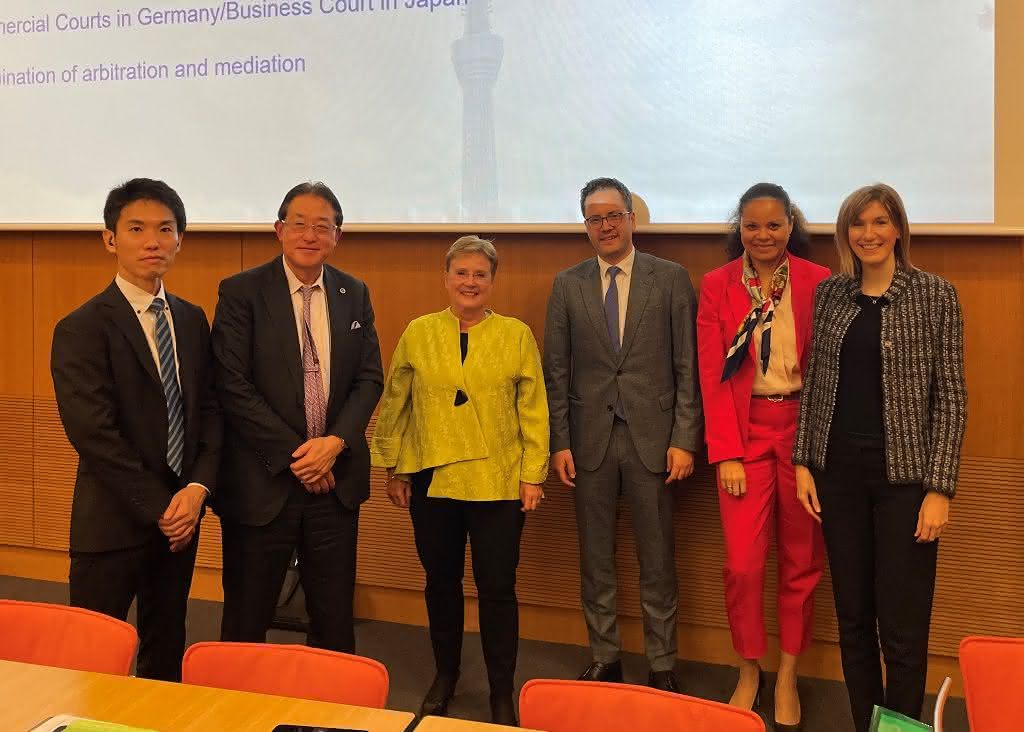The two discussion panels of the day were preceded by four short keynotes:
- Opening the event, “master of ceremonies” Rouven F. Bodenheimer underscored the shared legal traditions and cultural commonalities between the two nations, expressing optimism that this collaboration is not and will not remain a “one off” and instead marks an ongoing partnership between the Japanese and German arbitration communities.
- Andrea Schulz (German Federal Ministry of Justice) discussed Germany’s ongoing arbitration law reform and outlined key areas of focus.
- Ryuji Kawahara (Vice-Minister of Justice of Japan) remarked on the grown importance of international arbitration for the policy of the Japanese government and welcomed the conference as part of Japan’s broader strategy to enhance its international arbitration presence and strengthen ties with foreign institutions.
- Tadahiro Koike (Ministry of Justice of Japan) provided an overview on the Ministry’s recent initiatives to promote international arbitration, including the 2023 formation of a task force holding meetings and interviews with selected domestic and international arbitration experts.
The conference featured two in-depth panels, separated by a wonderful lunch reception hosted by the Embassy of Japan and the Ministry of Justice of Japan:
- Commonalities in German and Japanese Approaches to Arbitration
Moderated by Siegfried Elsing, the first panel explored the similarities and differences between Germany and Japan in the context of arbitration. Aiko Hosokawa discussed the differences between civil law and common law approaches to arbitration. Lars Markert examined differences in the efficiency in evidence-taking and case management in both jurisdictions, while Ulrike Gantenberg discussed the willingness of courts and tribunals in both countries to actively encourage settlement. Finally, Shinji Niioka shared his experience as general counsel on how arbitration is perceived and utilised by corporate clients in Japan and Germany. - What’s New in German and Japanese Arbitration?
The second panel, moderated by Dorothee Ruckteschler, delved into current innovations and emerging challenges in arbitration in both countries. Nadine Lederer and Shinji Ogawa discussed electronic arbitral awards and the debates around them in the UNCITRAL WG II. Shinji Ogawa and Jennifer Bryant discussed the enforcement of interim measures ordered by tribunals. Jennifer Bryant and Yoshihiro Takatori examined the challenges and opportunities in combining arbitration and mediation and its success in Japan. Benjamin Lissner discussed Germany's recent establishment of Commercial Courts and how these developments may interact or compete with arbitration proceedings in the future, compared to the establishment of the Tokyo Nakameguro Business Court as presented by Yoshihiro Takatori.
The conference concluded with remarks by Ramona Schardt, who emphasised the importance of collaboration between Germany and Japan to strengthen the influence of civil law traditions in international arbitration.
Jan Zimmermann




